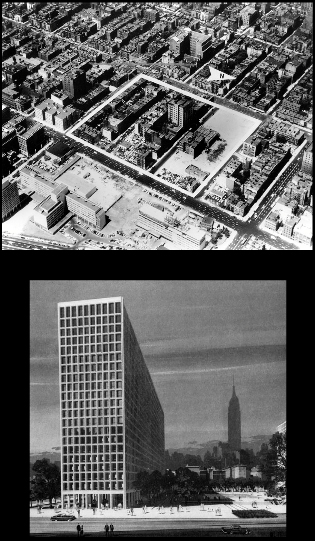

In conjunction with the construction of its new medical center, NYU sought the development of housing for its doctors and staff with the assistance of public funding provided by Title I of the federal Housing Act. The adjacent area between First and Second Avenues was identified as a suitable location that would require the demolition of an area that one NYU official claimed was plagued by “objectionable uses.” Working with Robert Moses and other public officials, NYU persuaded the Mayor’s Committee on Slum Clearance to condemn the ten-acre area between 30th and 33rd Streets, First and Second Avenues in 1954. The New York Times reported that the project, the NYU-Bellevue Urban Renewal Area, would require the removal of 1,600 low-income families living in apartments for which they paid as little as $25 per month. These residents complained that their neighborhood was not a slum. One Second Avenue storeowner stated: "When they tore down the El outside I saw the other side of the street for the first time. It looked beautiful. It still does to me. But not to other people, I guess." Demolition of buildings began in 1955.
The plan to develop the area between 30th and 33rd Streets into housing for NYU hospital staff fell through by 1957, and the project was taken over by William Zeckendorf. The real estate developer gave architect I.M. Pei the commission for designing a middle-income housing development named Kips Bay Plaza. Pei altered the initial plan for six slender towers to a pair of elongated twenty-one-story buildings